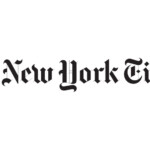The year 2023 witnessed significant weather-related disasters in the United States, notably Hurricane Idalia and the devastating firestorm in Hawaii. However, these were just a fraction of the total weather and climate disasters that occurred during that period.
The National Centers for Environmental Information reported a staggering 25 weather or climate disasters in 2023, resulting in losses exceeding $1 billion and claiming the lives of 482 individuals.
Looking ahead to 2024, experts from Northeastern University anticipate a more prominent role for artificial intelligence (AI) in predicting and mitigating such catastrophes. Auroop R. Ganguly, a distinguished professor in civil and environmental engineering, heads the AI4CaS initiative at Northeastern’s Institute for Experiential AI. Ganguly foresees a convergence of data-driven systems and AI technologies in the upcoming year to enhance forecasting accuracy.
Traditionally, climate prediction models have relied on the principles of physics and chemistry. However, the integration of machine learning and other AI tools has ushered in a new era of hybrid models, enabling environmental scientists to refine their forecasting techniques significantly.
Ganguly emphasizes the continuous evolution of weather prediction models in 2024, with AI complementing existing scientific methodologies to bolster preparedness for future disasters.
Moreover, collaborative efforts between doctoral students at Northeastern and the Tennessee Valley Authority aim to develop an advanced hybrid storm projection system, surpassing the current science-based approach.
In parallel, regulatory frameworks surrounding AI are expected to undergo enhancements in the upcoming year. Sina Fazelpour, an associate professor specializing in philosophy and computer technology at Northeastern, anticipates substantial developments in AI governance alongside improved disaster prediction capabilities.
Fazelpour highlights the need for defining best practices and regulatory standards, particularly in areas like “red teaming,” to ensure the robustness and security of AI systems.
As the AI landscape continues to evolve, emphasis is placed on incorporating ethics into AI development practices. Cansu Canca, a research associate professor overseeing Responsible AI Practice at the Institute for Experiential AI, underscores the importance of ethical considerations in AI utilization across various industries.
Looking forward, the year 2024 is poised to witness advancements in AI best practices, regulatory frameworks, and ethical integration, shaping a more responsible and efficient AI ecosystem for the future.






